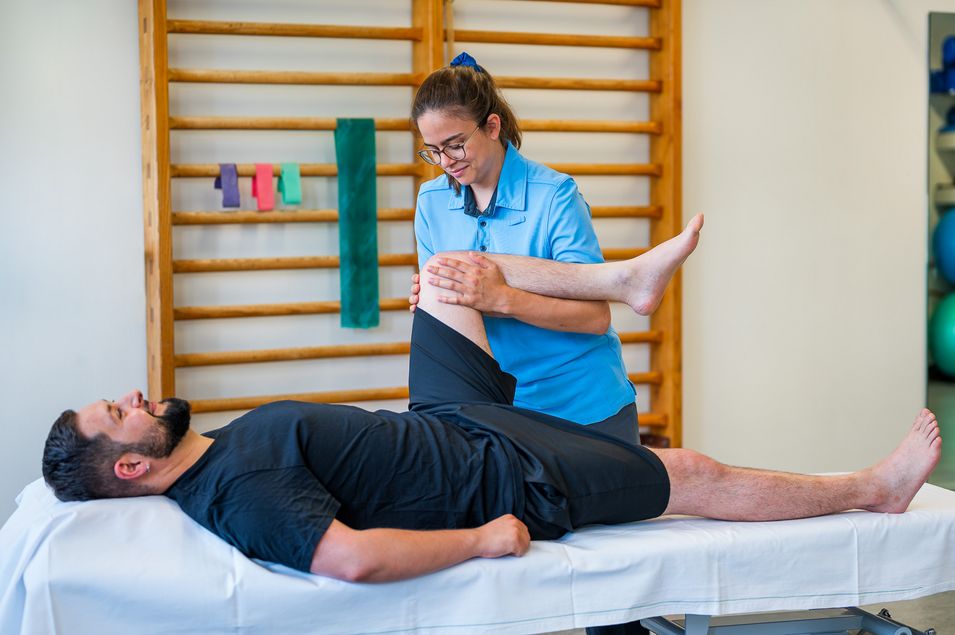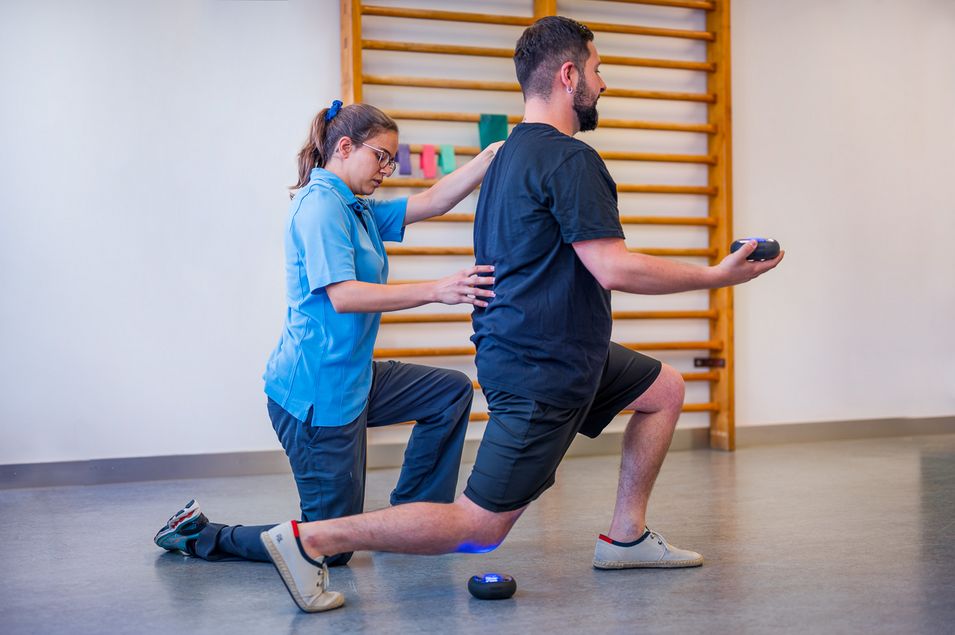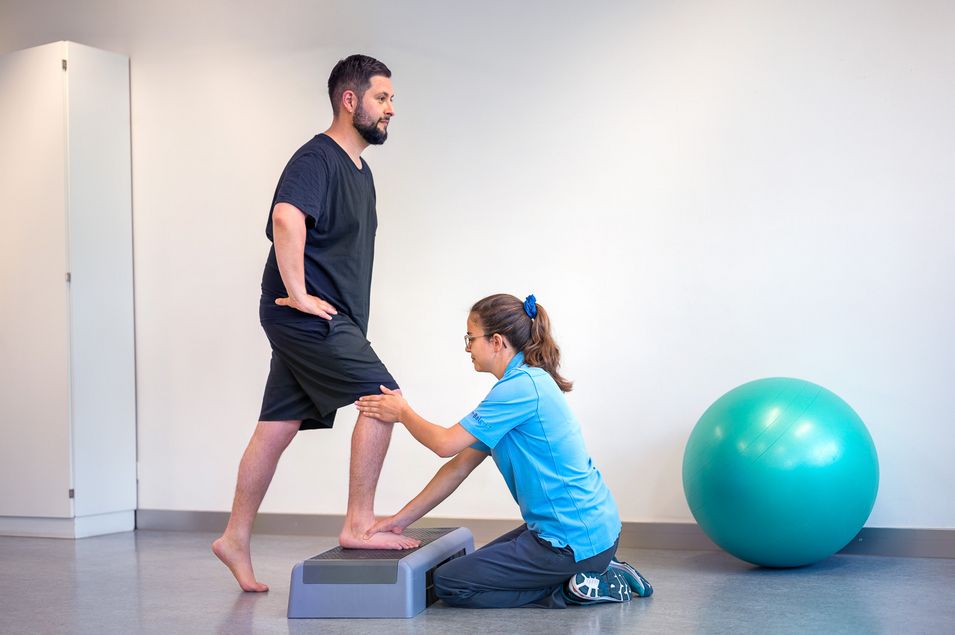Physiotherapy Hip, Knee and Foot
Walking – for most of us this is the most natural way to get around. The lower limbs (i.e. the hip, knee and feet) must be intact. Bones, ligaments, muscles and tendons must reliably interact with one another.
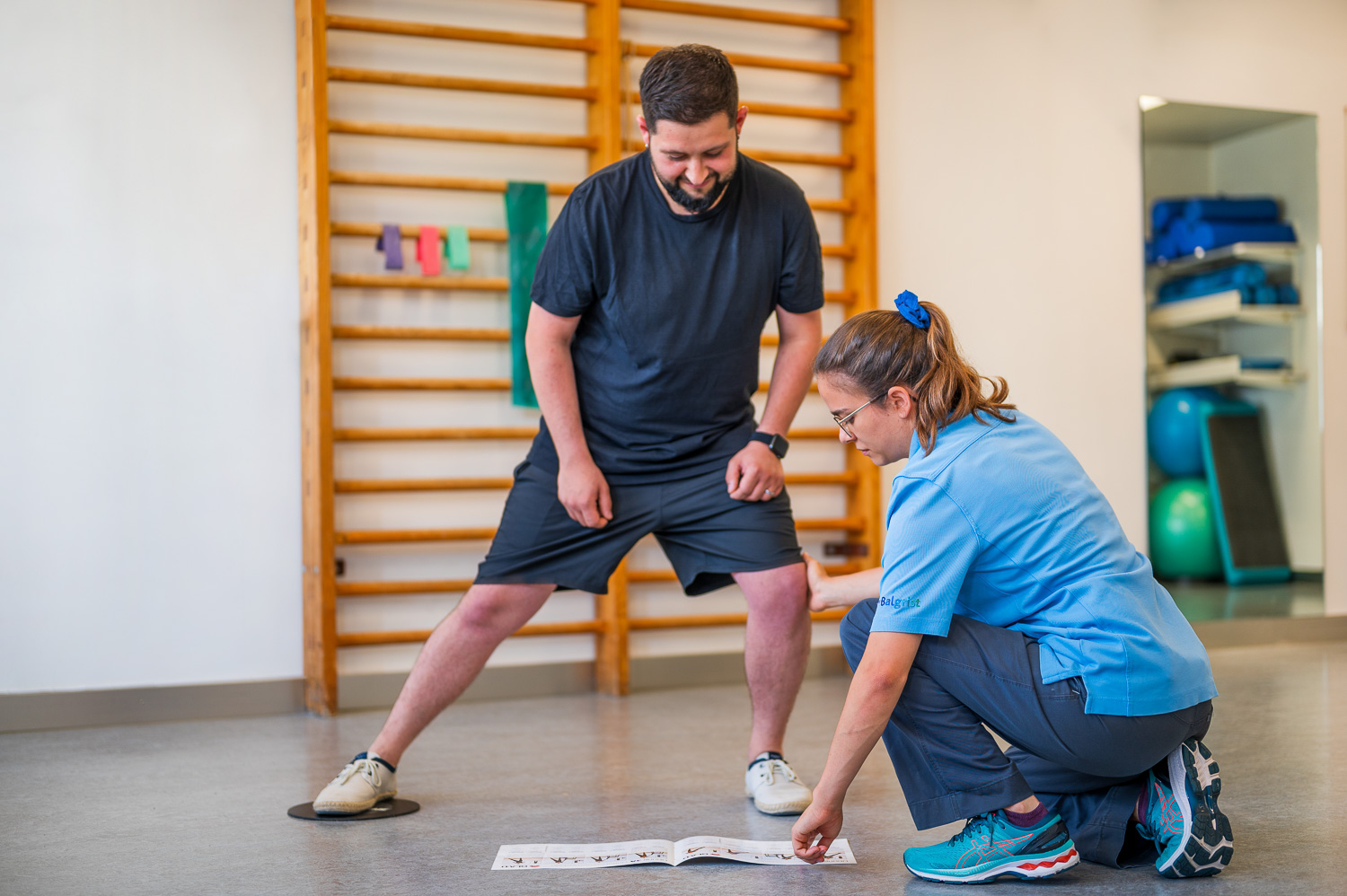
Our therapists are specialists in identifying and treating complex problems of the lower limbs. We use both manual therapy and active movement therapy (coordination and strength training) to treat joint dysfunctions. We develop individual exercise programs with you to strengthen your muscles and stabilize your joints. This will give you better control over the mechanical axis of your leg, which is important for movements that don’t put strain on your joints. We’ll help you to become more effective and approach your daily tasks and hobbies with enthusiasm.
Our offers
Water therapy in small groups
The physical properties of water make movements easier and pain-free. Water therapy in the pleasant 34 °C temperature of the walking pool and 32 °C temperature of the sports pool is particularly suitable for treating strain-related pain in the lower limbs. We offer outpatient water therapy (aqua gymnastics and aqua jogging) individually or in groups several times a week.
Medical Training Therapy (MTT)
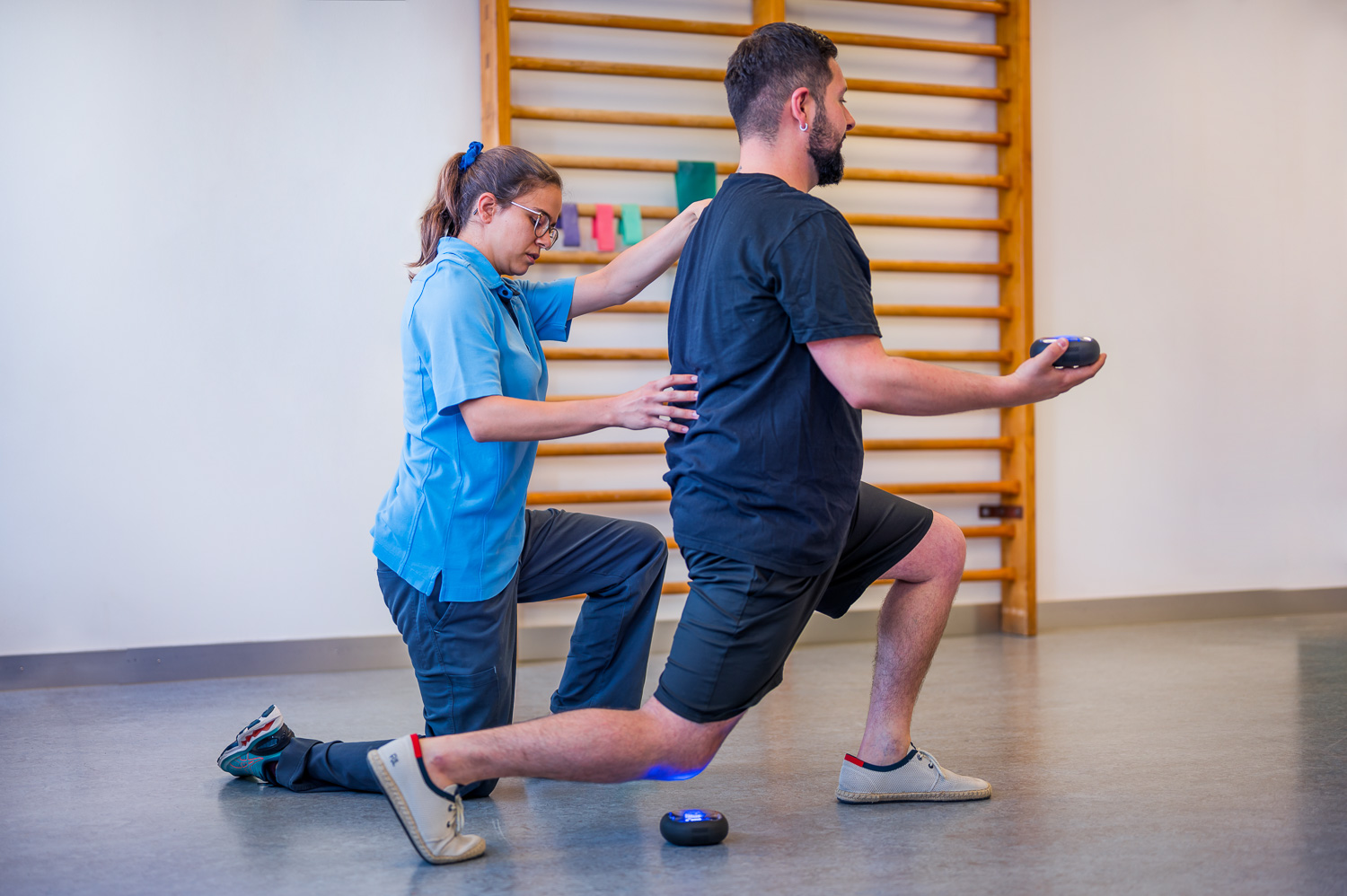
As soon as your muscles have been sufficiently strengthened, are more stable and you have less pain, we can continue your treatment using Medical Training Therapy (MTT). A team of specialist sports physiotherapists will take care of you. Many of our experts practice one or more sports themselves. They therefore know all about the physical and mental aspects of your sport and target these to help you get back to your sporting activities.
After successfully completing a therapy, it’s generally important to maintain the achieved form or continue to improve it. We therefore recommend that you train in our training center.
Appointments
Would you like to make an appointment or do you have questions about an existing appointment?
Monday to Friday
7.30 a.m.–5 p.m.
+41 44 386 15 88
Email
Our expert

René Giger
Specialist Team Leader Hip, Knee and Foot
Do you have questions about physiotherapy of the hip, knee and foot?
Monday to Friday
7.30 a.m.–5 p.m.
+ 41 44 386 15 98
Email
Courses and Massages
Are you healthy and symptom-free? We want to keep it that way. That's why we offer you a range of courses, training sessions and medical massages from which you can benefit even without a doctor's prescription.
Referral
Monday to Friday
7.30 a.m.–5 p.m.
+41 44 386 15 88
Email

